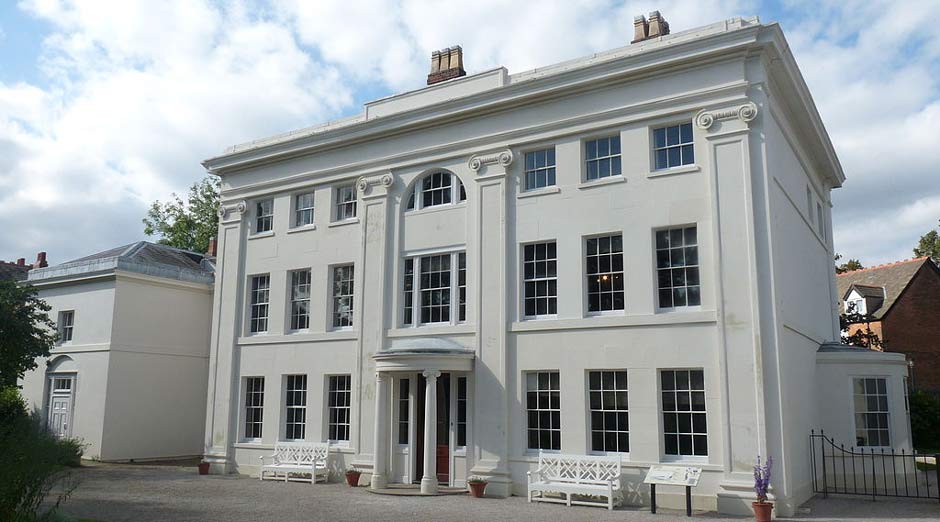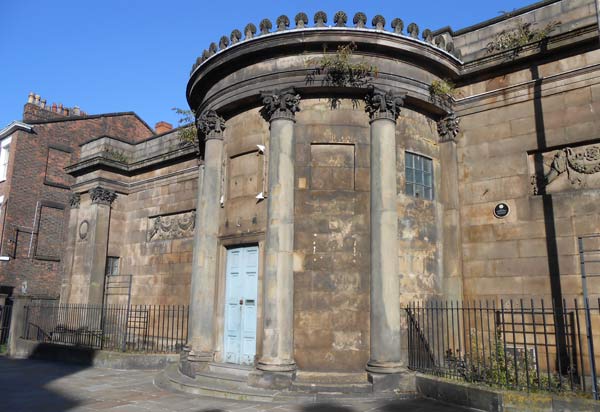Architecture and Society in an Age of Reform 1760-1840
Explore the Architecture and Society in an Age of Reform 1760-1840 research network. Funded by the Arts and Humanities Research Council, discover the project's objectives, past events, and collaborators contributing to the exploration of late Georgian cities.
Research project and network
About this project
Architecture and Society in an Age of Reform 1760-1840 is a research network studying the the role of architecture in shaping urban experience in the decades around 1800. It is funded by the Arts and Humanities Research Council.
The network will run a series of workshops, bringing together academics, independent scholars and institutional stakeholders to discuss the histories and patronage of a range of different public buildings, including hospitals, prisons and religious buildings. We aim to develop productive dialogue between three flourishing strands of scholarship: urban history, architectural history and the histories of reform and radicalism.

What we do
Our main objectives are to:
- Identify and discuss new questions, methods and sources, to influence research agendas in all the contributing disciplines
- Build sustainable connections with collaborators to sow the seeds for a larger research project led by the university's Eighteenth-Century Worlds research centre about the cultural, intellectual, spatial and political life of late Georgian cities
- Provide historical context for understanding and influencing policy relating both to current architectural projects (e.g. new Royal Liverpool Hospital) and redevelopment of historic buildings (e.g. the Wellington Rooms in Liverpool).
Celebrating Thomas Rickman
In tandem with this research project we are celebrating the life and career of Thomas Rickman (1776-1841), whose ground-breaking 'An Attempt to Discriminate the Styles of Architecture' was first printed in Liverpool in 1817.
Rickman’s career – and the associated archive – provides a connecting thread across this project, a springing point for addressing broader questions relating to architecture and society in the decades around 1800.

Past events
- Symposium at Lambeth Palace Library, September 2018
At this symposium we shared the findings of the network and identified suitable countries/partners for comparative purposes in future research. - Thomas Rickman and Liverpool symposium, May 2017
The aim of this conference was to critically evaluate Rickman’s work and its influence in the context of the town where he lived and worked, where he discovered architecture and underwent the transformation from insurance clerk to professional architect. - Networking events, 2017
Three networking events were held in Liverpool, Bristol and Birmingham - all towns where Rickman worked. The workshops identified and disseminated key buildings/building types, sources and methods for understanding architecture of the period. Outcomes from these events will inform future research and provide historical context for current policy towards the reuse of historic structures. More details about the events are on the Thomas Rickman website.
Collaborators
Our network is supported by partnership with Lambeth Palace Library and the Georgian Group.
We also benefit from support and involvement of academics from the Research Institute of Culture, Cognition, History and Heritage (CLUE +) at the Vrije Universiteit, Amsterdam, the University of California at Santa Barbara, the University of Copenhagen and Rice University, Texas.
Individual members of the network include:
- Megan Aldrich (independent scholar)
- Alex Bremner (Edinburgh College of Art, university of Edinburgh)
- Alexandrina Buchanan (PI) (University of Liverpool)
- Elaine Chalus (University of Liverpool)
- Jackie Collier (University of Bath Spa)
- Malcolm Dick (University of Birmingham)
- Paul Elliott (University of Derby)
- Sheryllynne Haggerty (University of Nottingham)
- Shirine Hamadeh (Rice University, Texas)
- Bob Harris (University of Oxford)
- Katy Layton-Jones (University of Leicester)
- Jon Mee (University of York)
- Steve Poole (University of the West of England)
- Kyle Roberts (Loyola University, New York)
- Frank Salmon (St John’s College, University of Cambridge)
- Joseph Sharples (independent scholar)
- Richard Sheldon (University of Bristol)
- Freek Schmidt (Vrije Universiteit Amsterdam);
- Kate Smith (University of Birmingham)
- Henriette Steiner (University of Copenhagen)
- Christine Stevenson (Courtauld Institute, University of London)
- Jon Stobart (Manchester Metropolitan University)
- Rosemary Sweet (University of Leicester)
- Alannah Tomkins (University of Keele)
- Mark Towsey (CI) (University of Liverpool)
- Nick Webb (University of Liverpool)
- Richard Wittman (University of California at Santa Barbara).